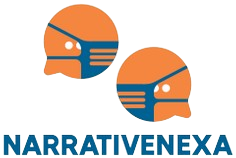Introduction to Quantum Computing in Drug Discovery
Quantum computing is an emerging technology that promises to revolutionize various fields, and drug discovery is no exception. This cutting-edge approach leverages the principles of quantum mechanics to process information in fundamentally new ways, offering unprecedented speed and efficiency.
What is Quantum Computing?
Quantum computing differs from classical computing by using quantum bits or qubits, which can represent and store a greater range of data thanks to their ability to exist in multiple states simultaneously. This parallelism allows quantum computers to solve complex problems much faster than traditional computers.
Qubits and Their Significance
Qubits leverage superposition and entanglement to perform computations at an exponentially faster rate than classical bits. This capability is particularly beneficial for drug discovery, where the computational demands are exceptionally high.
Challenges in Modern Drug Discovery
The traditional drug discovery process is long, costly, and fraught with a high failure rate. It typically involves identifying potential targets, screening numerous compounds, and conducting exhaustive trials.
Cost and Time Constraints
Developing a new drug can take over a decade and cost billions. The current methods are inefficient partly because of the enormous chemical space scientists must explore to find viable drug candidates.
Quantum Computing to the Rescue
Quantum computing can significantly accelerate many aspects of drug discovery, from target identification to optimizing drug candidates. Here are a few ways it can make a difference:
- Enhanced Molecule Simulation: Quantum computers can simulate molecular interactions at an atomic level, providing insights that classical computers cannot match.
- Faster Screening Processes: By quickly analyzing massive datasets, quantum computers can identify potential drug candidates more efficiently.
- Accurate Predictions: Quantum algorithms can make more accurate predictions about how different drugs will interact with biological targets.
Case Studies and Real-World Applications
Several notable projects showcase the potential of quantum computing in drug discovery:
- IBM’s Qiskit: IBM’s open-source quantum computing framework Qiskit has been used to simulate small molecules like lithium hydride and beryllium hydride, offering promising results.
- Google’s Quantum Research in Pharma: Google has partnered with pharmaceutical companies to explore quantum computing’s applications in drug discovery, with early experiments showing remarkable potential.
The Future of Quantum Computing in Pharmaceuticals
The integration of quantum computing into drug discovery is still in its infancy, but the trajectory points towards a transformational impact on the pharmaceutical industry. As the technology matures, it promises to streamline drug development processes, reduce costs, and improve the success rate of new medications.
Ethical and Practical Considerations
Despite its potential, the adoption of quantum computing in drug discovery must be approached cautiously, considering ethical issues and the current technological limitations. Ensuring data security, managing high operational costs, and addressing regulatory concerns are essential steps for future deployment.
Conclusion
Quantum computing holds the key to unlocking faster, more efficient drug discovery processes. By simulating complex molecular interactions and rapidly screening vast chemical libraries, this technology could significantly expedite the development of new therapies, ultimately benefiting global healthcare.




